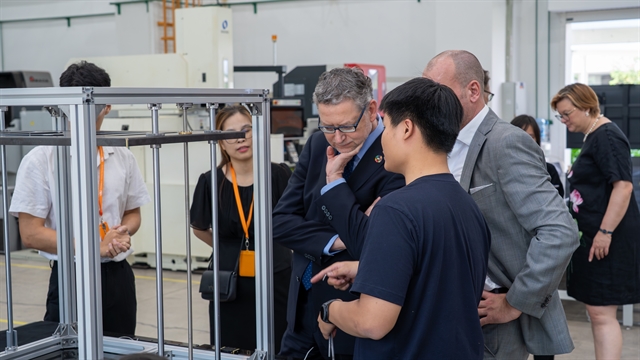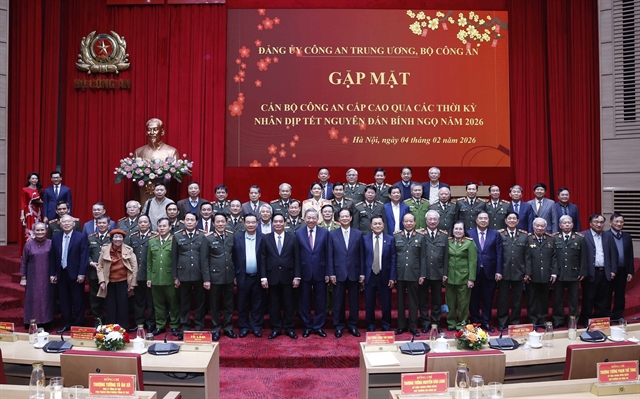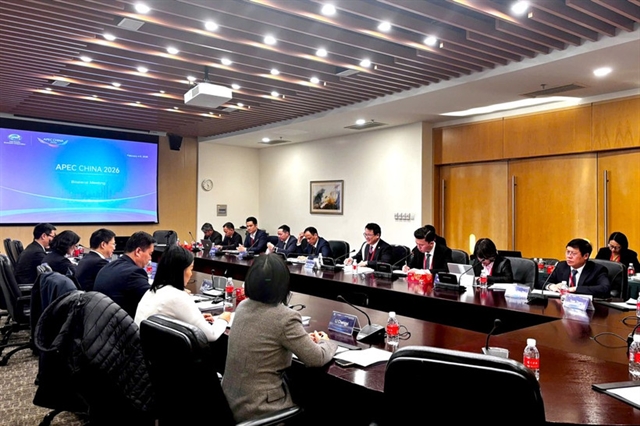 advertisement
advertisement

To urgently support Viet Nam’s healthcare system in the previous year, Pfizer collaborated with the Ministry of Health (MOH) of Vietnam to complete the delivery of about 110 million doses of our COVID-19 vaccine to people as quickly as possible. A similar effort was extended to Vietnamese regulatory and administrative bodies though the implementation of medical and scientific education to all related stakeholders to ensure that Viet Nam met the vaccine storage and handling requirements.
Pfizer Vietnam has recently received a prestigious Certificate of Merit from Prime Minister Pham Minh Chinh for the company’s significant contribution to supplying the COVID-19 vaccines in 2021.
{ "id": "9shhwUTCGX", "type": "myToolImages", "data": { "data": "" } }
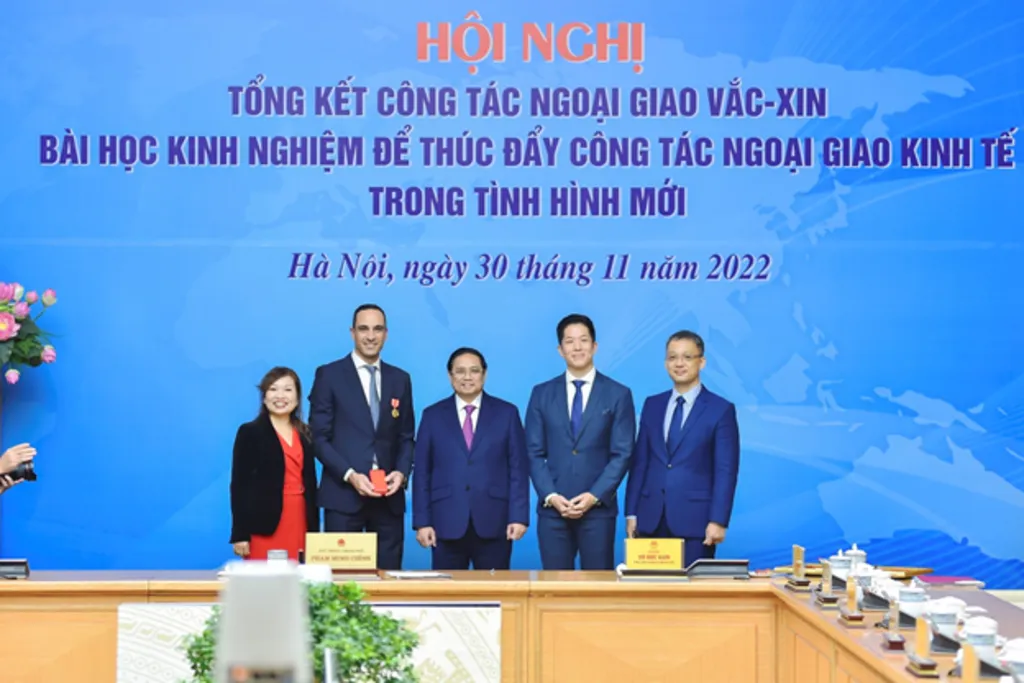 |
| A picture of Prime Minister and Pfizer representative |
{ "id": "g6sDUa3VnZ", "type": "myToolImages", "data": { "data": "" } }
Viet Nam News had an interview with Darrell Oh about these great efforts in the battle against COVID-19 in Viet Nam.
As we can see, Viet Nam and other developing nations could access COVID-19 vaccinations from Pfizer at a non-profit rate in 2021. What is the purpose of this offer?
During these extraordinary times, we have priced our COVID-19 vaccine to be consistent with the urgent global health emergency we are facing to help ensure widespread vaccination in all countries that supply our vaccine. To date, we have been supplying the vaccine almost entirely through governments and pricing it based on each country’s ability to provide it to its citizens without any cost to them.
In all agreements, we have deployed the same pricing approach for high, middle, and low-income countries with low and lower-middle income countries paying a not-for-profit price. Our tiered pricing approach enables poorer countries to pay less.
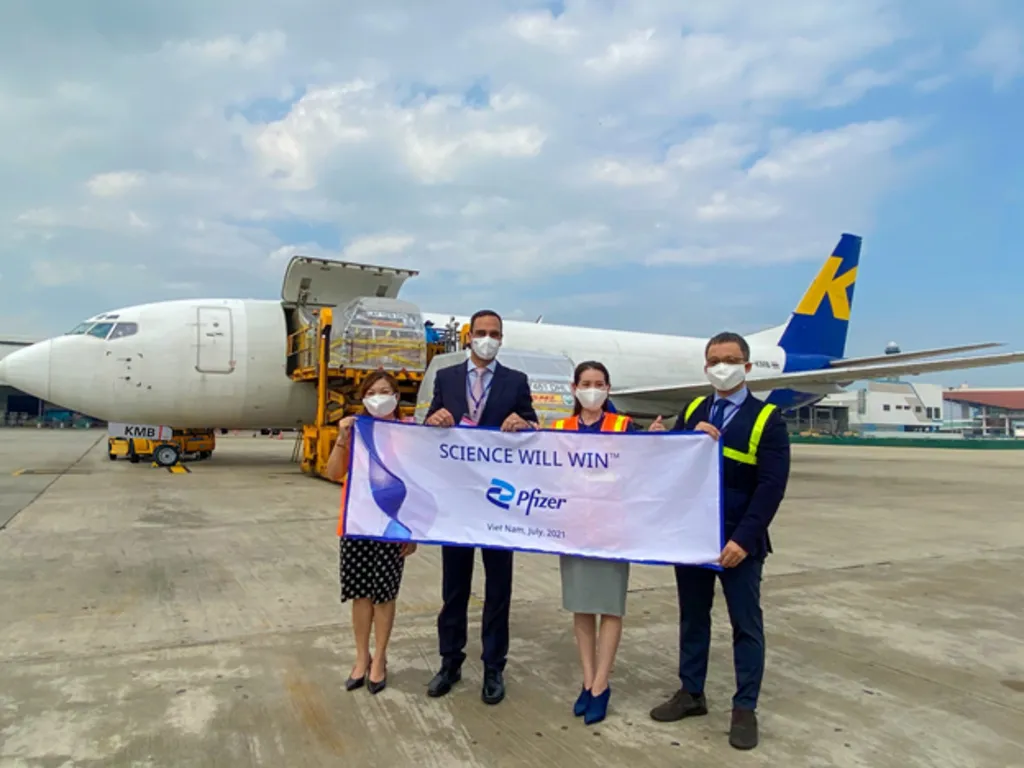 |
| First shipment of Comirnaty arrived in Viet Nam on July 7, 2021 |
{ "id": "sf9s0HGF38", "type": "myToolImages", "data": { "data": "" } }
However, providing doses alone is insufficient to ensure equitable access. How does Pfizer intend to achieve this objective of equitable access?
We have developed comprehensive equitable access strategies for both our COVID-19 vaccine and oral antiviral therapy. We believe that this is a collective responsibility that calls for highly coordinated and collaborative action by public and private stakeholders alike to end the COVID-19 pandemic.
We are actively working with governments all around the world as well as global health partners to work towards fair and equitable access to COVID-19 vaccines while also providing our expertise and resources for novel approaches that can help to strengthen healthcare systems where greater support may be needed.
In addition to vaccine supply, we are engaging in several other access initiatives and in May 2022 we launched “An Accord for a Healthier World” to provide all of Pfizer’s patented, high-quality medicines and vaccines on a non-for-profit basis to 1.2 billion people in 45 lower-income countries.
As of November 2022, we have delivered more than 4.3 billion doses to 181 countries and territories around the world.
What particular actions are taken in Viet Nam in addition to the distribution of COVID-19 vaccines to strengthen Viet Nam's healthcare system?
We know that it is not just vaccines that will bring an end to this pandemic, but vaccinations. Country readiness encompasses all the requirements for countries receiving doses to successfully vaccinate their target populations. We have seen challenges in country readiness, including gaps in cold chain and service delivery, insufficient workforce capacity and issues with demand and vaccine confidence. Distributing these types of products rapidly and at national scale has no precedent in modern public health, and close coordination across all stakeholders is critical for ensuring the success of vaccination campaigns. We continue to partner with the global health community, governments, and private industry to address these challenges to enable greater supply.
What is Pfizer's future strategy for working with the government to stop COVID-19 and other non-communicable diseases?
From the beginning of the pandemic, Pfizer recognized that a dual approach of prevention and treatment was critical to control COVID-19. Vaccination is the first line of defence to prevent hospitalisation and death. Treatments complement vaccination efforts and, by helping to protect against severe illness caused by breakthrough infections, help address gaps in vaccine uptake and the emergence of new variants.
As the COVID-19 landscape continues to evolve, our strategy remains focused on the dual pillars of prevention and treatment. We remain committed to following the science as we explore new vaccine candidates designed to broadly protect against current, emerging, and future SARS-CoV-2 variants of concern, as well as advancing studies exploring use of our oral antiviral treatment in additional populations with high unmet need and continuing work on next-generation treatment agents for people of all ages.


